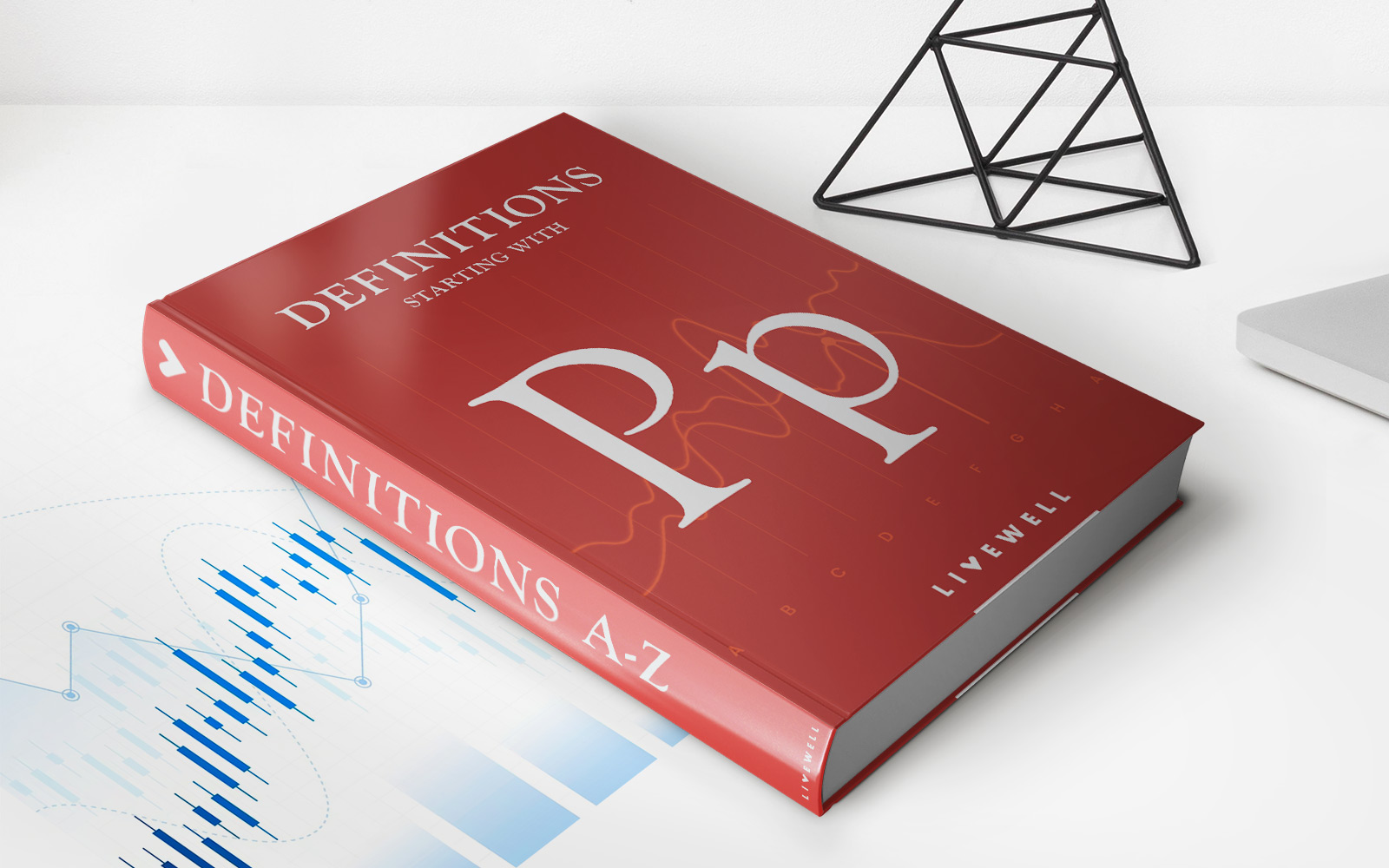

Finance
How To Get Out Of Private Student Loans
Published: January 20, 2024
Looking for ways to tackle your private student loans? Get expert financial advice and strategies to eliminate your debt in no time.
(Many of the links in this article redirect to a specific reviewed product. Your purchase of these products through affiliate links helps to generate commission for LiveWell, at no extra cost. Learn more)
Table of Contents
Introduction
Private student loans are often a necessity for students pursuing higher education. While they can provide financial assistance, they can also become a burden due to high interest rates and strict repayment terms. Many borrowers find themselves struggling to make payments, which can have long-term implications on their financial well-being.
In this article, we will explore various strategies to help you get out of private student loans effectively. It is important to note that these options may not be applicable to everyone, as each individual’s financial situation is unique. It is always advisable to consult with a financial advisor or student loan specialist to determine the best course of action for your specific circumstances.
Understanding the terms of your private student loans is the first step in finding a solution. Take the time to review your loan agreement, paying close attention to the interest rate, repayment period, and any additional fees or penalties. This information will help you navigate the options available to you.
Continue reading to discover various strategies that can help you alleviate the burden of private student loans and pave the way for financial freedom.
Understanding Private Student Loans
Private student loans are loans offered by banks, credit unions, or other financial institutions to fund education expenses. Unlike federal student loans, which are funded by the government, private student loans often come with higher interest rates and less flexible repayment options.
Private student loans are typically based on the borrower’s credit history or co-signer’s creditworthiness. For students without established credit, a co-signer is often required to secure the loan. It is important to carefully consider the terms and conditions before borrowing private student loans, as the interest rates can vary widely, and repayment terms can be less favorable compared to federal loans.
When dealing with private student loans, it’s essential to stay informed about your specific loan details. Understand the interest rate, repayment period, and any applicable fees or penalties. Knowing these details will help you make informed decisions about your repayment strategy and explore alternatives to make your loan more manageable.
Private student loans do not typically offer the same benefits as federal student loans, such as income-driven repayment plans or loan forgiveness programs. This can make repaying private student loans more challenging, especially if you’re experiencing financial hardship or are unable to secure a well-paying job after graduation.
Now that you have a better understanding of what private student loans are, let’s explore the various options to help you tackle them effectively.
Evaluate Repayment Options
When it comes to repaying private student loans, exploring different repayment options can provide you with more flexibility and potentially lower monthly payments.
1. Standard Repayment Plan: This is the default repayment option for most private student loans. It involves making fixed monthly payments over a specific period of time. While this option may be suitable for some borrowers, it can result in higher monthly payments compared to other repayment plans.
2. Graduated Repayment Plan: This plan starts with lower monthly payments that gradually increase over time. It can be beneficial for borrowers who anticipate their income to increase in the future. However, keep in mind that the overall interest paid over the life of the loan may be higher compared to the standard repayment plan.
3. Extended Repayment Plan: This option allows you to extend your repayment term beyond the standard 10-year period. By stretching out the repayment period, you can lower your monthly payments. However, keep in mind that you may end up paying more in interest over the life of the loan.
4. Income-Based Repayment Plan: While this option is more commonly associated with federal student loans, some private lenders may offer income-based repayment plans. With these plans, your monthly payments are based on a percentage of your income, making it more manageable during periods of limited earnings.
Before considering any of these options, discuss them with your lender to understand the terms and eligibility criteria. Additionally, consider using online tools or calculators to compare different repayment plans and see how they may impact your monthly payments and overall interest paid.
Evaluating your repayment options can help you find a plan that aligns with your financial situation and provides you with the flexibility you need to manage your private student loans effectively.
Seek Loan Forgiveness or Discharge
While private student loans generally do not offer the same level of forgiveness or discharge options as federal student loans, it is worth exploring any potential avenues for relief.
1. Disability Discharge: If you become permanently disabled and are unable to work, you may qualify for a disability discharge. Contact your loan servicer to inquire about the eligibility criteria and necessary documentation to apply for this discharge.
2. Death Discharge: In the unfortunate event of the borrower’s death, some private lenders may offer a death discharge, which relieves the borrower’s estate of the obligation to repay the loan. It is essential to inform the loan servicer to initiate the discharge process.
3. Unfair or Deceptive Practices: In some cases, if you believe that the lender engaged in unfair or deceptive practices when issuing the loan, you may be able to challenge the loan’s validity. Consult with a consumer protection attorney or reach out to the Federal Trade Commission (FTC) for guidance on your rights and potential options.
4. Refund Discharge: If your school closed while you were enrolled or shortly after you withdrew, you may be eligible for a refund discharge. This means that you may not have to repay the loan or a portion of it. Contact your loan servicer to understand the requirements for a refund discharge.
Keep in mind that loan forgiveness or discharge options for private student loans are generally limited. It is crucial to reach out to your loan servicer or lender directly to inquire about any potential relief programs that may be available to you.
Remember, private student loans can carry significant financial burdens, so it is essential to explore all potential avenues for loan forgiveness or discharge to alleviate your repayment obligations.
Refinance or Consolidate Loans
If you’re looking to simplify your repayment process or potentially lower your interest rates, you may consider refinancing or consolidating your private student loans.
1. Refinancing: Refinancing involves replacing one or more existing loans with a new loan from a private lender. The new loan typically comes with new terms, such as a lower interest rate, longer repayment period, or a fixed interest rate, which can help reduce your monthly payments. However, it’s important to note that refinancing may not be suitable for everyone. To qualify for refinancing, you typically need a strong credit history and stable income.
2. Consolidation: Loan consolidation allows you to combine multiple loans into a single loan, making it easier to manage your payments. The consolidated loan can have new terms and possibly a lower interest rate. Keep in mind that consolidation may not always result in a reduced monthly payment or overall interest savings, so carefully consider the terms and evaluate if it aligns with your financial goals.
Before refinancing or consolidating your private student loans, consider the following:
- Compare interest rates and terms from different lenders to ensure you’re getting the most favorable option.
- Understand any fees associated with refinancing or consolidation. These can include origination fees, prepayment penalties, or other charges.
- Evaluate the impact on any benefits or protections offered by your current loans. Federal loans often have borrower-friendly features, such as loan forgiveness, income-driven repayment plans, and more, which may not be available if you refinance into a private loan.
- Carefully review the new loan agreement, including the interest rate, repayment period, and any other terms and conditions.
Refinancing or consolidating your private student loans may offer potential benefits, but it’s important to weigh the pros and cons and consider how they align with your long-term financial goals.
Negotiate with Lenders
If you’re struggling to meet your private student loan payments, it’s worth exploring the possibility of negotiating with your lenders. While it may not always be successful, it’s worth a try as lenders may be willing to work with borrowers who are facing financial difficulties.
Here are some steps to take when negotiating with your lenders:
1. Contact your lender: Reach out to your lender as soon as you anticipate difficulty in making your monthly payments. Explain your situation, whether it’s due to a job loss, financial hardship, or other circumstances. Lenders may offer temporary forbearance, loan modification, or other options to help alleviate the financial burden.
2. Provide documentation: Prepare and submit any necessary documentation to support your case. This could include proof of income changes, medical bills, or other financial hardships that are impacting your ability to repay. Providing this documentation can strengthen your negotiation and demonstrate your willingness to resolve the situation.
3. Propose a new repayment plan: Be prepared to propose a new repayment plan that is more manageable for you based on your current financial situation. This could involve requesting a lower interest rate, extended repayment term, or reduced monthly payment amount. Presenting a well-thought-out plan can improve the chances of reaching a mutually beneficial agreement.
4. Seek professional guidance: If you’re unsure how to negotiate with your lenders or need assistance in presenting your case effectively, consider seeking help from a student loan counselor or financial advisor. These professionals have experience dealing with lenders and can provide valuable guidance throughout the negotiation process.
Remember, negotiating with lenders is not guaranteed to result in a favorable outcome. However, by taking proactive steps and effectively communicating your situation and proposed solutions, you increase your chances of finding a resolution that eases the financial burden of your private student loans.
Create a Repayment Plan
Creating a well-structured repayment plan can help you regain control of your private student loans and ensure that you stay on track with your payments. Here are some steps to consider when developing your repayment plan:
1. Assess your current financial situation: Start by evaluating your income, expenses, and other financial obligations. Determine how much you can realistically allocate towards your student loan payments each month.
2. Prioritize your loans: If you have multiple private student loans, prioritize them based on factors such as interest rates and outstanding balances. Consider focusing on paying off the loans with the highest interest rates first while making minimum payments on the others.
3. Set a realistic timeline: Establish a timeline for when you aim to repay your loans. This will help you stay disciplined and focused on achieving your goal. Breaking down the total amount owed into manageable monthly or quarterly targets can make your repayment plan more achievable.
4. Consider making extra payments: If your financial situation allows, consider making additional payments towards your loans whenever possible. This can help reduce the principal amount and save money on interest over the life of the loan.
5. Automate your payments: Set up automatic payments through your bank or loan servicer to ensure that you never miss a payment. This not only helps you stay organized but may also make you eligible for potential interest rate reductions or benefits offered by some lenders.
6. Stay in touch with your lender: Maintain open communication with your lender and update them on any changes in your financial situation. If you encounter difficulties with your repayment plan, reach out to discuss possible alternatives or temporary relief options.
7. Regularly review and adjust your plan: Periodically review your repayment plan to assess its effectiveness and make necessary adjustments. As your financial situation evolves, you may need to revise your plan to ensure it remains aligned with your goals.
A well-structured repayment plan provides you with a clear roadmap for managing your private student loans effectively. By staying organized, disciplined, and adaptable, you can steadily progress towards becoming debt-free.
Seek Professional Assistance
If you’re feeling overwhelmed or uncertain about how to handle your private student loans, seeking professional assistance can provide valuable guidance and support. Consider the following options:
1. Student Loan Counselors: Student loan counselors specialize in helping borrowers navigate their student loan options and develop a customized repayment strategy. They can provide information on loan forgiveness programs, repayment plans, and assist with loan consolidation or refinancing processes. They can also help you understand your rights and responsibilities as a borrower.
2. Financial Advisors: Consulting with a financial advisor can be beneficial, especially if you have multiple financial goals or if your student loans are just one part of your overall financial picture. They can provide advice on budgeting, saving, and managing debt effectively, helping you create a comprehensive financial plan that takes your student loans into account.
3. Legal Aid Services: If you believe that your lender has engaged in unfair or deceptive practices, consider seeking legal aid services to understand your rights and explore potential legal options. Legal professionals can review your loan documents, assess any violations, and guide you through the legal process if necessary.
4. Nonprofit Organizations: There are various nonprofit organizations dedicated to assisting borrowers with student loan debt. They may offer resources, educational materials, and workshops to help you better understand your loan options and navigate the repayment process.
Remember to research and choose reputable professionals or organizations to ensure you receive accurate and reliable advice. Be cautious of scams or companies that promise quick fixes or charge exorbitant fees.
Seeking professional assistance can provide you with the expertise and support needed to make informed decisions about your private student loans. They can help you explore all available options and create a plan that aligns with your financial goals and circumstances.
Conclusion
Navigating private student loans can be challenging, but with the right knowledge and strategies, you can effectively manage and overcome them. It is crucial to understand your loan terms, evaluate repayment options, and explore possibilities for loan forgiveness or discharge. Refinancing or consolidating loans can also provide relief by potentially lowering interest rates or simplifying repayment.
When dealing with private student loans, don’t hesitate to negotiate with lenders and seek professional assistance. Lenders may be willing to work with you if you’re facing financial difficulties, and student loan counselors or financial advisors can provide guidance tailored to your specific situation. Additionally, exploring relief options such as disability discharge or refund discharge can offer some reprieve.
Create a repayment plan that suits your financial capabilities and goals, prioritizing loans and considering extra payments when possible. Automating payments and regularly reviewing and adjusting your plan can help you stay on track and progress towards becoming debt-free.
Remember, everyone’s financial circumstances are unique, so it’s crucial to consult with professionals and consider your options carefully. With determination, patience, and the right support, you can successfully manage and eventually eliminate your private student loan debt, paving the way for a brighter financial future.














